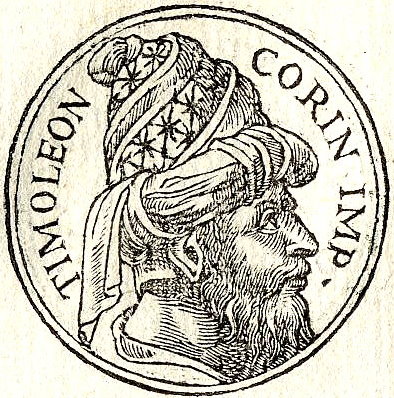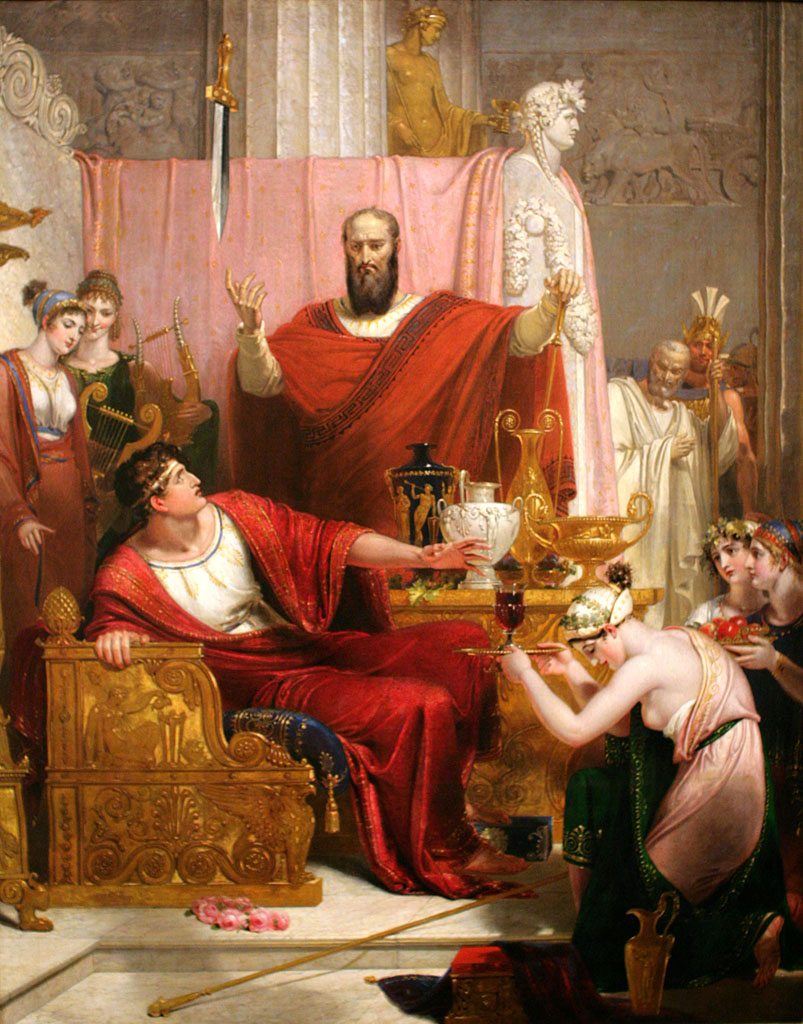|
344 BC
__NOTOC__ Year 344 BC was a year of the pre-Julian Roman calendar. At the time it was known as the Year of the Consulship of Rutilus and Torquatus (or, less frequently, year 410 ''Ab urbe condita''). The denomination 344 BC for this year has been used since the early medieval period, when the Anno Domini calendar era became the prevalent method in Europe for naming years. Events By place Persian Empire * The king of Caria, Idrieus, dies, leaving the Persian satrapy, by his will, to his sister Ada, to whom he was married. Greece * The Athenian statesman, Demosthenes, travels to Peloponnesus, in order to detach as many cities as possible from Macedon's influence, but his efforts are generally unsuccessful. Most of the Peloponnesians see Philip II as the guarantor of their freedom, so they send a joint embassy to Athens to express their grievances against Demosthenes' activities. In response to these complaints, Demosthenes delivers the Second Philippic, which is a veh ... [...More Info...] [...Related Items...] OR: [Wikipedia] [Google] [Baidu] |
Roman Calendar
The Roman calendar was the calendar used by the Roman Kingdom and Roman Republic. The term often includes the Julian calendar established by the reforms of the Roman dictator, dictator Julius Caesar and Roman emperor, emperor Augustus in the late 1stcenturyBC and sometimes includes any system dated by inclusive counting towards months' kalends, nones (calendar), nones, and ides (calendar), ides in the Roman manner. The term usually excludes the Alexandrian calendar of Roman Egypt, which continued the unique months of that land's Egyptian calendar, former calendar; the Byzantine calendar of the Byzantine Empire, later Roman Empire, which usually dated the Roman months in the simple count of the ancient Greek calendars; and the Gregorian calendar, which refined the Julian system to bring it into still closer alignment with the tropical year. Roman dates were counted inclusively forward to the next of three principal days: the first of the month (the kalends), a day shortly befor ... [...More Info...] [...Related Items...] OR: [Wikipedia] [Google] [Baidu] |
Aristocracy
Aristocracy (, ) is a form of government that places strength in the hands of a small, privileged ruling class, the aristocracy (class), aristocrats. The term derives from the el, αριστοκρατία (), meaning 'rule of the best'. At the time of the word's origins in ancient Greece, the Greeks conceived it as rule by the best-qualified citizens—and often contrasted it favorably with monarchy, rule by an individual. The term was first used by such ancient Greeks as Aristotle and Plato, who used it to describe a system where only the best of the citizens, chosen through a careful process of selection, would become rulers, and hereditary rule would actually have been forbidden, unless the rulers' children performed best and were better endowed with the attributes that make a person fit to rule compared with every other citizen in the polity. Hereditary rule in this understanding is more related to oligarchy, a corrupted form of aristocracy where there is rule by a few, bu ... [...More Info...] [...Related Items...] OR: [Wikipedia] [Google] [Baidu] |
Assus
Assos (; grc-gre, Ἄσσος, la, Assus) is a beautiful small and historically important town on the Aegean coast in the Ayvacık district of Çanakkale province, Turkey. It is on the southern side of Biga Peninsula (better known by its ancient name of the Troad). Assos sits on the coast of the Adramyttian Gulf (Turkish: Edremit Körfezi.Troas">Alexandria_Troas.html" ;"title="rom Alexandria Troas">Troasto Assos, there intending to take Paul on board ... and when he met us at Assos, we took him on board and came to Mitylene". From this period onwards, Assos shrunk to the small village it has remained ever since. From the Middle Ages the only relics are the Hüdavendigar Mosque and Bridge dating back to the second half of the 14th century.The mosque is on the hilltop near the ruined temple while the bridge is off the road to Ayvacık. Modern archaeological discoveries The ruins of ancient Assos continue to be excavated. In 2018, archaeologists discovered an undamaged He ... [...More Info...] [...Related Items...] OR: [Wikipedia] [Google] [Baidu] |
Aristotle
Aristotle (; grc-gre, Ἀριστοτέλης ''Aristotélēs'', ; 384–322 BC) was a Greek philosopher and polymath during the Classical period in Ancient Greece. Taught by Plato, he was the founder of the Peripatetic school of philosophy within the Lyceum and the wider Aristotelian tradition. His writings cover many subjects including physics, biology, zoology, metaphysics, logic, ethics, aesthetics, poetry, theatre, music, rhetoric, psychology, linguistics, economics, politics, meteorology, geology, and government. Aristotle provided a complex synthesis of the various philosophies existing prior to him. It was above all from his teachings that the West inherited its intellectual lexicon, as well as problems and methods of inquiry. As a result, his philosophy has exerted a unique influence on almost every form of knowledge in the West and it continues to be a subject of contemporary philosophical discussion. Little is known about his life. Aristotle was born in th ... [...More Info...] [...Related Items...] OR: [Wikipedia] [Google] [Baidu] |
Carthage
Carthage was the capital city of Ancient Carthage, on the eastern side of the Lake of Tunis in what is now Tunisia. Carthage was one of the most important trading hubs of the Ancient Mediterranean and one of the most affluent cities of the classical world. The city developed from a Canaanite Phoenician colony into the capital of a Punic empire which dominated large parts of the Southwest Mediterranean during the first millennium BC. The legendary Queen Alyssa or Dido, originally from Tyre, is regarded as the founder of the city, though her historicity has been questioned. According to accounts by Timaeus of Tauromenium, she purchased from a local tribe the amount of land that could be covered by an oxhide. As Carthage prospered at home, the polity sent colonists abroad as well as magistrates to rule the colonies. The ancient city was destroyed in the nearly-three year siege of Carthage by the Roman Republic during the Third Punic War in 146 BC and then re-developed as Roman Car ... [...More Info...] [...Related Items...] OR: [Wikipedia] [Google] [Baidu] |
Hicetas (tyrant Of Syracuse)
Hicetas (Greek: or ) was tyrant of Syracuse, during the interval between the reign of Agathocles and that of Pyrrhus. After the death of Agathocles (289 BCE), his supposed assassin, Maenon, put to death Archagathus, the grandson of Agathocles; and assuming the command of the army with which the latter was besieging Aetna, directed his arms against Syracuse. Hereupon Hicetas was sent against him by the Syracusans, with a considerable army: but after the war had continued for some time, without any decisive result, Maenon, by calling in the aid of the Carthaginians, obtained the superiority, and the Syracusans were compelled to conclude an ignominious peace. Soon after ensued the revolution which led to the expulsion of the Campanian mercenaries, afterwards known as the Mamertines: and it must have been shortly after this that Hicetas established himself in the supreme power, as we are told by Diodorus that he ruled nine years. The only events of his government that are recorded are ... [...More Info...] [...Related Items...] OR: [Wikipedia] [Google] [Baidu] |
Taormina
Taormina ( , , also , ; scn, Taurmina) is a ''comune'' (municipality) in the Metropolitan City of Messina, on the east coast of the island of Sicily, Italy. Taormina has been a tourist destination since the 19th century. Its beaches on the Ionian sea, including that of Isola Bella, are accessible via an aerial tramway built in 1992, and via highways from Messina in the north and Catania in the south. On 26–27 May 2017 Taormina hosted the 43rd G7 summit. History The history of Taormina dates back to before Ancient Greece established its first colony on Sicily in 734 BCE. After the fall of the Western Roman Empire, Taormina continued to rank as one of the more important towns of the island. Taormina followed the history of Sicily in being ruled by successive foreign monarchs. After the Italian unification, Taormina began to attract well-off tourists from northern Europe, and it became known as a welcoming haven for gay men and artists. Main sights The presen ... [...More Info...] [...Related Items...] OR: [Wikipedia] [Google] [Baidu] |
Tauromenium
Taormina ( , , also , ; scn, Taurmina) is a ''comune'' (municipality) in the Metropolitan City of Messina, on the east coast of the island of Sicily, Italy. Taormina has been a tourist destination since the 19th century. Its beaches on the Ionian sea, including that of Isola Bella (Sicily), Isola Bella, are accessible via an aerial tramway built in 1992, and via highways from Messina in the north and Catania in the south. On 26–27 May 2017 Taormina hosted the 43rd G7 summit. History The history of Taormina dates back to before Ancient Greece established its first colony on Sicily in 734 BCE. After the fall of the Western Roman Empire, Taormina continued to rank as one of the more important towns of the island. Taormina followed the history of Sicily in being ruled by successive foreign monarchs. After the Italian unification, Taormina began to attract well-off tourists from northern Europe, and it became known as a welcoming haven for gay men and artists. Main si ... [...More Info...] [...Related Items...] OR: [Wikipedia] [Google] [Baidu] |
Sicily
(man) it, Siciliana (woman) , population_note = , population_blank1_title = , population_blank1 = , demographics_type1 = Ethnicity , demographics1_footnotes = , demographics1_title1 = Sicilian , demographics1_info1 = 98% , demographics1_title2 = , demographics1_info2 = , demographics1_title3 = , demographics1_info3 = , timezone1 = CET , utc_offset1 = +1 , timezone1_DST = CEST , utc_offset1_DST = +2 , postal_code_type = , postal_code = , area_code_type = ISO 3166 code , area_code = IT-82 , blank_name_sec1 = GDP (nominal) , blank_info_sec1 = €89.2 billion (2018) , blank1_name_sec1 = GDP per capita , blank1_info_sec1 ... [...More Info...] [...Related Items...] OR: [Wikipedia] [Google] [Baidu] |
Timoleon
Timoleon (Ancient Greek language, Greek: wikt:Τιμολέων, Τιμολέων), son of Timodemus, of Ancient Corinth, Corinth (c. 411–337 BC) was a Greek statesman and general. As a brilliant general, a champion of Greece against Ancient Carthage, Carthage, and a fighter against despotism, he is closely connected with the history of Sicily, especially Syracuse, Italy, Syracuse. Early life Timoleon was a member of the Corinthian oligarchy. In the mid 360s BC, Timophanes, the brother of Timoleon, took possession of the acropolis of Corinth and effectively made himself tyrant of the city. In response, Timoleon, who had earlier heroically saved his brother's life in battle, and after repeatedly pleading with him to desist, became involved in the assassination of Timophanes. Most Corinthians approved his conduct as patriotic; however, the tragic occurrence, the actual fratricide, the curses of his mother, and the indignation of some of his fellow citizens, drove him into a ... [...More Info...] [...Related Items...] OR: [Wikipedia] [Google] [Baidu] |
Dionysius II Of Syracuse
Dionysius the Younger ( el, Διονύσιος ὁ Νεώτερος, 343 BC), or Dionysius II, was a Greek politician who ruled Syracuse, Sicily from 367 BC to 357 BC and again from 346 BC to 344 BC. Biography Dionysius II of Syracuse was the son of Dionysius the Elder and Doris of Locri. When his father died in 367 BC, Dionysius, who was at the time under thirty years old, and completely inexperienced in public affairs, inherited the supreme power and began ruling under the supervision of his uncle, Dion, whose disapproval of the young Dionysius's lavishly dissolute lifestyle compelled him to invite his teacher Plato to visit Syracuse. Together they attempted to restructure the government to be more moderate, with Dionysius as the archetypal philosopher-king (see the ''Seventh Letter'' of Plato). However, under the influence of opponents of Dion's reforms, Dionysius conspired with the historian Philistus and banished his uncle, taking complete power in 366 BC. Without Dion, D ... [...More Info...] [...Related Items...] OR: [Wikipedia] [Google] [Baidu] |







